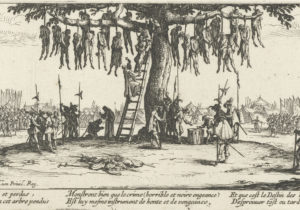Many do not want to believe it, but globalism is continuing to unravel, and we are in a forest of confusion about the terms we should use to describe where we are and where we should go. A generation of thinkers on the left and right who have defended the liberal world order see it under attack and declare that dismantling it would erase the long march liberal nations have made away from the parochial prejudices that lead to war. Do we stand on the brink, they wonder, of a return to the nationalism of the past two centuries? The nationalisms of the nineteenth and twentieth centuries were re-enchantment movements that deified the nation in the wake of the collapse of Christendom in Europe. God
I do not doubt that some people today have that in mind when they think of the nation. In the aftermath of the recent National Conservativism conference in Washington (July 14–16, 2019), there has been much hand-wringing about whether this new development in conservative thought wishes to underwrite national idolatry anew. In fairness to what went on at the conference, that sort of thinking about the nation was absent. There was talk of cherishing our lived traditions and about telling the economists that they may no longer have veto power in human affairs. All this was very refreshing to hear. And long overdue. The deeper secret, long-hidden in the hearts of so many of the attendees and speakers, was that they were always uncomfortable with the veto power economics had in conservative circles, and are now relieved that they are not alone in suggesting that a new balance must be struck.
This new balance must recognize that while economists may be right that economic improvement requires ever-expanding global markets and an ever-developing division of labor, it is also the case that this economic consideration cannot trump the larger political fact that man needs a home. That fact has been ignored for too long, to the detriment of the welfare of the laboring citizens who live within our borders, and to the least among us as well. The solid foundation on the basis of which the nation must be defended today is that man needs a home, that the nation is the largest possible home-in-the-world we are able to have, and that the globalist experiment was based on the audacious and unsustainable claim that we need no such home, that “cosmopolitan man” represents the apex of human development. The intellectual energy of the conference was focused on the bald fact that globalism makes man homeless. Those of us who attended the conference—prominent Providence contributor Rebeccah Heinrichs was among them—want to defend the nation and the mediating institutions that we need in order to live well, none of which can flourish without a place to do so, protected by law and by long-practice.
I do not doubt that a number of people in America want a Christian nation of an enchanted sort; the humbler desire that many of us have is of a nation in which Christians can have a home. Said otherwise, America is not a Christian nation, but it is a nation largely of Christians. The cosmopolitans of the world would deny us that more modest claim. That is why many Christians are contributing to the National Conservativism project. We do so in full agreement with many to the cautions laid out in the August 19, 2019, “Open Letter Against the New Nationalism: An Appeal to Our Fellow Christians,” by the editors of Commonweal. The nation is not a thing to be invested with religious content. But we depart from their declaration in that we recognize that without a home, a nation, there is no room for Christianity at all.
The pressing intellectual problem of the moment is that cosmopolitans who believe in a content-less nation (or in no nation at all) see any attempt to infuse content into the nation as a dangerous and parochial effort. In effect, they see only two alternatives: cosmopolitan universalism or parochial particularism. There is a third alternative, namely, embodied—dare I say “incarnate”—life which, though imperfect and plagued by brokenness, more accurately reflects who man is and how he must live with others in hope and in charity. That third way is the one we must cherish and defend. That is why I defend the return to the nation, but not a return to “nationalism.”







 Sponsor a student for Christianity & National Security 2024
Sponsor a student for Christianity & National Security 2024